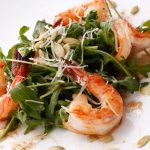In our most recent episode of Objective:Health, we interviewed oxalate expert Sally Norton, who shines light on the many hidden dangers of long-term elevated oxalate consumption.
Warning: After listening to this episode, you will likely reconsider what you consider to be "treats" in your diet. After learning more and more about this topic, I believe it has the potential to be a game-changer for many people's health.
MOST of the "health foods" we eat liberally in Paleo or Keto diets are extremely high in oxalates. This is absolutely essential listening!
Warning: After listening to this episode, you will likely reconsider what you consider to be "treats" in your diet. After learning more and more about this topic, I believe it has the potential to be a game-changer for many people's health.
MOST of the "health foods" we eat liberally in Paleo or Keto diets are extremely high in oxalates. This is absolutely essential listening!



 . Good to know it could take years, as has been mentioned in the video, so I won't lose heart.
. Good to know it could take years, as has been mentioned in the video, so I won't lose heart. ) but by the end, after mentioning the "keep a bit of your favorites" in your diet, I warmed up to her again
) but by the end, after mentioning the "keep a bit of your favorites" in your diet, I warmed up to her again 
 I'm with you on that as I love all those foods you just mentioned! In fact, I'm having iced tea as I write this.
I'm with you on that as I love all those foods you just mentioned! In fact, I'm having iced tea as I write this. 
